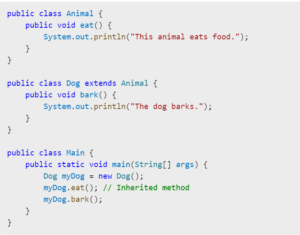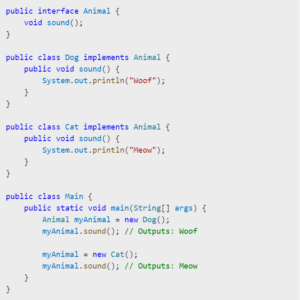The Single Most Important Thing You Need To Know About JAVA DEVELOPMENT
Java, a versatile and widely-used programming language, has stood the test of time as a cornerstone of software development. Since its introduction in 1995, it has been adopted for various purposes, from building web applications to creating robust enterprise systems. For developers diving into Java or seeking to refine their expertise, it’s easy to get lost in the vast ecosystem. Frameworks, libraries, and tools abound, and opinions on the “most important thing” vary. However, at its core, the single most crucial aspect of Java development is understanding and applying object-oriented programming (OOP) principles effectively.
Why Object-Oriented Programming is Essential in Java
Java is inherently an object-oriented programming language. The language’s design, libraries, and frameworks are deeply intertwined with OOP principles. Understanding these principles goes beyond academic knowledge; they’re the foundation of writing efficient, maintainable, and scalable Java applications. Let’s delve into what makes OOP principles the heart of Java development:
1. Encapsulation: Protecting Your Data
Encapsulation refers to bundling data (fields) and methods that operate on the data into a single unit or class. It also means restricting direct access to some of the object’s components, which helps maintain control over the internal state of the object.
Example:

Encapsulation ensures the balance field is not directly accessible, allowing controlled modifications only through the provided methods.
2. Inheritance: Building on Existing Code
Inheritance allows developers to create new classes based on existing ones, promoting code reuse and reducing redundancy.
Example:

Inheritance simplifies code and fosters a hierarchical structure, but overuse can lead to complex dependencies. Striking the right balance is key.
3. Polymorphism: Writing Flexible Code
Polymorphism enables a single interface to represent different data types. It promotes flexibility and scalability in applications.
Example:

Polymorphism ensures the application can accommodate new types with minimal changes, enhancing its adaptability.
4. Abstraction: Simplifying Complex Systems
Abstraction focuses on exposing only the necessary details while hiding the implementation complexities. In Java, abstraction is achieved through abstract classes and interfaces.
Example:

Abstraction helps in managing complexity by defining clear boundaries and responsibilities within the code.
How Mastering OOP Enhances Java Development
- Improves Code Maintainability
When your code adheres to OOP principles, it’s easier to debug, extend, and maintain. Encapsulation ensures that changes in one part of the application don’t inadvertently affect other parts.
- Enables Scalability
Well-structured object-oriented applications are inherently scalable. As your application grows, new features can be added with minimal disruption to existing code.
- Fosters Reusability
Inheritance and abstraction promote code reuse, reducing development time and effort.
- Enhances Collaboration
Object-oriented designs are intuitive and modular, making it easier for teams to collaborate. Developers can work on different classes or modules simultaneously without conflict.
Practical Steps to Master OOP in Java
- Understand the Basics: Start with the fundamental concepts of OOP, including classes, objects, and methods.
- Practice: Build small projects to reinforce your understanding of encapsulation, inheritance, polymorphism, and abstraction.
- Read Code: Study well-written open-source Java projects to see how OOP principles are applied in real-world scenarios.
- Learn Design Patterns: Patterns like Singleton, Factory, and Observer are built on OOP principles and provide solutions to common design problems.
- Refactor Your Code: Regularly refactor to improve your application’s adherence to OOP principles.
Beyond OOP: Integrating Modern Java Practices
While mastering OOP is the single most important thing for Java developers, the language and its ecosystem have evolved. To remain competitive, developers should also embrace:
- Functional Programming: Modern Java versions (starting with Java 8) support functional programming paradigms through features like lambdas and streams.
- Microservices Architecture: Java frameworks like Spring Boot facilitate the development of microservices, a popular approach in modern application development.
- Performance Optimization: Understanding the Java Virtual Machine (JVM) and optimizing garbage collection, threading, and memory usage are critical for high-performance applications.
- Testing and Automation: Tools like JUnit and Mockito enable robust unit testing, ensuring code reliability.
- Continuous Learning: The Java ecosystem is vast and ever-evolving. Staying updated with new versions, frameworks, and tools is essential.
Conclusion
Java’s success lies in its simplicity and power, underpinned by object-oriented principles. Whether you’re a novice or an experienced developer, understanding and applying OOP effectively is the most critical skill you can cultivate in Java development. By mastering these principles and embracing modern practices, you’ll be equipped to build robust, scalable, and maintainable applications that stand the test of time.
Comments
Post a Comment